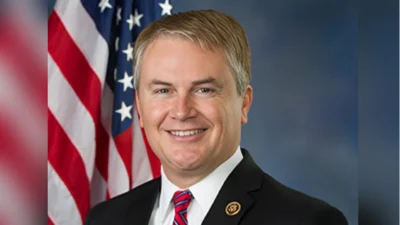Today, the House Agriculture Subcommittee on Conservation, Credit, Energy, and Research, chaired by Congressman Tim Holden of Pennsylvania, continued its review of climate change issues by examining the costs and benefits of agriculture offset proposals.
The U.S. Department of Agriculture’s Chief Economist, the Congressional Budget Office’s Assistant Director for Microeconomic Studies, and five professors with significant experience in agricultural and environmental economics testified about offset proposals in general and within the context of climate change legislation currently under consideration by Congress.
"Over the past two days, we have heard testimony about both the impacts of carbon emissions legislation on our farms as well as the effects of a changing climate on cropland and livestock," Chairman Holden said. “What is clear is that both action and inaction come with a price tag. Today's panels of researchers and economists provided an inclusive and realistic analysis of the use of agriculture offsets and other alternatives to counter these new costs."
“I am alarmed by Dr. Glauber’s testimony that under a cap and trade program some sectors of livestock production would be reduced by double digits by 2050," said Ranking Member Bob Goodlatte. “If USDA’s analysis is true then U.S. agriculture may have difficulties providing food security for the U.S. population, which is expected to grow by 130 million Americans by 2050. From my discussion with witnesses on our second panel, I believe we can find alternatives to cap and trade that will not have these negative effects on our farm economy. We should be exploring these alternatives."
The establishment of an agricultural and forestry offset program was a major provision in House-passed climate change legislation to recognize and reward these sectors for conservation activities and clean energy production. Under the bill, U.S. Department of Agriculture (USDA) will work with farmers, ranchers and forestland owners to design and implement plans that reduce or avoid greenhouse gas emissions and sequester carbon on their operations. Participants will earn offsets for these actions, and they can sell the credits to utilities, refiners, or other firms subject to limitations on greenhouse gas emissions.
Yesterday, the Subcommittee held a hearing to review economic analyses that consider the potential economic impacts of climate change on the farm sector. Written testimony provided by witnesses for both hearings is available on the Committee website: http://democrats-agriculture.house.gov/hearings/index.html. A full transcript of the hearing will be posted on the Committee website at a later date.
Witnesses:
Panel I
* Dr. Joseph Glauber, Chief Economist, U.S. Department of Agriculture, Washington, D.C.
* Dr. Joseph Kile, Assistant Director for Microeconomic Studies, Congressional Budget Office, Washington, D. C.
Panel II
* Dr. Brian C. Murray, Director for Economic Analysis, Nicholas Institute for Environmental Policy Solutions, Duke University, Durham, North Carolina
* Dr. Bruce A. McCarl, Distinguished Professor of Agricultural Economics, Texas A&M University, College Station, Texas
* Dr. Brent L. Sohngren, Professor, Department of Agricultural, Environmental, and Development Economics, The Ohio State University, Columbus, Ohio
* Dr. Dermot J. Hayes, Professor of Economics, Center for Agricultural and Rural Development, Iowa State University, Ames, Iowa
* Dr. Michael Wara, Assistant Professor, Stanford Law School, Stanford, California
http://democrats-agriculture.house.gov
Source: House Committee on Agriculture








